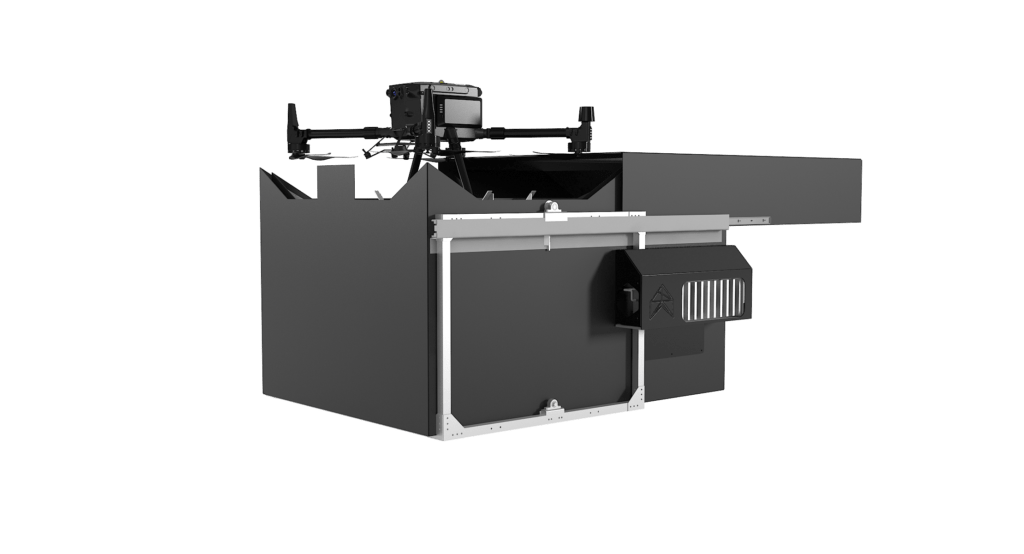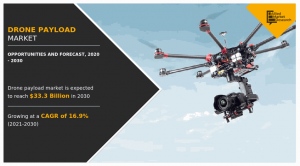 Every year, the Energy Drone & Robotics Coalition hosts a three-day Summit. It attracts, connects and informs thousands of worldwide industrial uncrewed leaders in the rapidly growing energy sector. DroneLife contributor Dawn Zoldi is at the event, providing coverage of some of the key challenges and solutions being discussed for operating drones, satellites, and robotics successfully, from the stars to the sea floor.
Every year, the Energy Drone & Robotics Coalition hosts a three-day Summit. It attracts, connects and informs thousands of worldwide industrial uncrewed leaders in the rapidly growing energy sector. DroneLife contributor Dawn Zoldi is at the event, providing coverage of some of the key challenges and solutions being discussed for operating drones, satellites, and robotics successfully, from the stars to the sea floor.
Aerodyne Group Showcases Local BVLOS with Remote Operations in Malaysia at Energy Drone & Robotics Coalition Summit
by Dawn Zoldi
Aerodyne Group, the global DT3 (drone technology, data technology & digital transformation) enterprise solutions provider with its headquarters in Cyberjaya, Malaysia, has launched the first-of-its-kind localized remote operations beyond visual line of sight (BVLOS) drone project in Malaysia. This Nested Intelligent System (FULCRUM) eventually will conduct pipeline right-of-way (ROW) monitoring and encroachment assessments autonomously over a span of more than 1630 miles.
Continue reading below, or listen:
Malaysian energy companies currently use helicopters to monitor potential pipeline ROW encroachments. Given the expense of these flights, which average $150,000 USD a mission, current inspection cycles consist of a single deployment once every six months.
Targeted foot patrols supplement these flights, on an as-needed basis, after the aircraft verifies an encroachment. These manual inspections involve sending, on average, two people into remote locations, for 8 hours at a time. Obvious dangers aside, it costs about $500 USD each time humans deploy for a closer look to validate potential pipeline problems.
Aerodyne, the #1 Global Drone Service Provider in 2021 according to Drone Industry Insights, plans to digitally transform these pipeline inspections using its proprietary drone-in-a-box (DIB) or Nested Drone System (NDS) solutions called Aerodyne FULCRUM. This DIB or NDS in general, have been proven to increase the safety, efficiency and quality of data collection and analysis across the energy sector.
Aerodyne FULCRUM will autonomously launch uncrewed aerial vehicles (UAVs) to fly either on pre-programmed flight plans or ad-hoc requests over pipeline ROWs to collect close-in data. The drone will return to a highly sophisticated, self-contained, and networked landing box for battery swap and safe keeping. Each compact unit weighs slightly more than 200lbs and can fit on the back of a pick-up truck. It can charge up to six batteries simultaneously and the system can automatically swap out a drone’s battery in less than 90 seconds.

During the initial phase of the project, the company will strategically locate thirteen units of FULCRUM systems at multiple sites within a Block Valve Stations compound along the ROW. Each drone will collect data and monitor the encroachment for up to a five-mile radius around the nest, on a 24/7 basis.
As part of this Phase 1, Aerodyne will also need to overcome significant challenges. Maintaining stable communications, cyber security, and system reliability in Malaysia’s tropical environment, rank highest among these.
Once the company proves the value proposition for drones in pipeline inspections, subsequent project phases will add increasing autonomy and extend the drones’ flight parameters even further. For the next phase, Aerodyne is planning to showcase the BVLOS operations up to 60 miles in Q3, 2022.
According to Harjeet Johal, company lead for North America, Mexico and the Caribbean, Aerodyne FULCRUM will radically change the battle rhythm for pipeline inspections by providing a safe, reliable, cost effective and autonomous around-the-clock capability. “Our Nested Drone System will enable energy companies to rapidly scale, digitally transform, operate safely and increase productivity,” he said.
Civil Aviation Authorities of Malaysian (CAAM) provided special BVLOS approval to conduct these operations. As in the United States and many other countries across the globe, BVLOS drone operations are the exception to the general rule that requires a remote pilot to maintain visual line of sight of the aircraft.
Malaysia uses the risk-based Joint Authorities for Rulemaking on Unmanned Systems (JARUS) Specific Operations Risk Assessment (SORA). The JARUS SORA requires both a ground and air risk assessment and related Specific Assurance and Integrity Levels (SAIL). These SAILs drive Operational Safety Objectives (OSO) that must then be met.
According to Johal, Aerodyne addressed ground risk by planning its flights over unpopulated areas and establishing geo-fences around the pipeline ROWs. Each drone also includes a parachute capability to reduce potential ground risk, when or if necessary. Air risk mitigations include publishing Notices to Air Missions (NOTAMs) during drone operations. An operations center will also maintain radio communications with air traffic control (ATC) and provide ATC with real-time flight telemetry data.
In this case, the BVLOS approval took several months. It involved a pre-application meeting to submit a draft SORA plan to the CAA, followed by a formal application meeting. Document reviews and evaluations of the SORA, concept of operations and risk mitigations preceded capabilities demonstrations, the final step for approval.
“We are taking a crawl-walk-run approach in Malaysia,” said Johal. “Our team is excited to start crawling with short-range autonomous BVLOS operations, with the ultimate goal of country-wide pipeline monitoring flights that can be remotely conducted”
Long range BVLOS flights in Malaysia will involve onboard detect-and-avoid technology and integration with an UAS traffic management system.
Stay tuned for more as the company continues to bend the global tech curve. It is on target to resolve the complex industrial challenges for the energy sector in Malaysia and beyond.
Read more about Aerodyne:
 Dawn M.K. Zoldi (Colonel, USAF, Retired) is a licensed attorney with 28 years of combined active duty military and federal civil service to the U.S. Air Force. She is the CEO & Founder of P3 Tech Consulting and an internationally recognized expert on uncrewed aircraft system law and policy. Zoldi contributes to several magazines and hosts popular tech podcasts. Zoldi is also an Adjunct Professor for two universities, at the undergraduate and graduate levels. In 2022, she received the Airwards People’s Choice Industry Impactor Award, was recognized as one of the Top Women to Follow on LinkedIn and listed in the eVTOL Insights 2022 PowerBook. For more information, follow her on social media and visit her website at: https://www.
Dawn M.K. Zoldi (Colonel, USAF, Retired) is a licensed attorney with 28 years of combined active duty military and federal civil service to the U.S. Air Force. She is the CEO & Founder of P3 Tech Consulting and an internationally recognized expert on uncrewed aircraft system law and policy. Zoldi contributes to several magazines and hosts popular tech podcasts. Zoldi is also an Adjunct Professor for two universities, at the undergraduate and graduate levels. In 2022, she received the Airwards People’s Choice Industry Impactor Award, was recognized as one of the Top Women to Follow on LinkedIn and listed in the eVTOL Insights 2022 PowerBook. For more information, follow her on social media and visit her website at: https://www.
Miriam McNabb is the Editor-in-Chief of DRONELIFE and CEO of JobForDrones, a professional drone services marketplace, and a fascinated observer of the emerging drone industry and the regulatory environment for drones. Miriam has penned over 3,000 articles focused on the commercial drone space and is an international speaker and recognized figure in the industry. Miriam has a degree from the University of Chicago and over 20 years of experience in high tech sales and marketing for new technologies.
For drone industry consulting or writing, Email Miriam.
TWITTER:@spaldingbarker
Subscribe to DroneLife here.
https://dronelife.com/2022/06/23/aerodyne-fulcrum-bvlos-drone-ops-for-pipeline-inspection/
 Unmanned Aerial Vehicle The latest drone news
Unmanned Aerial Vehicle The latest drone news


